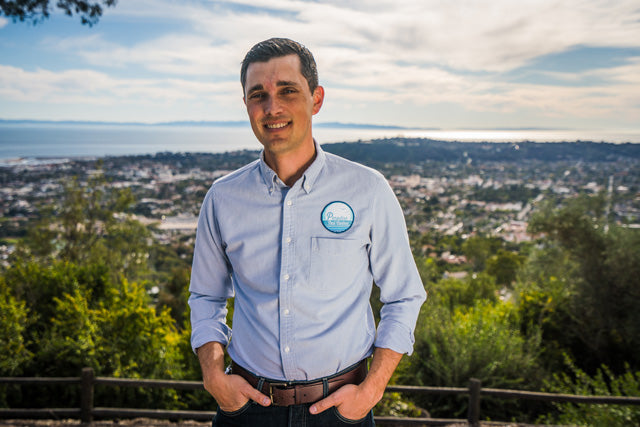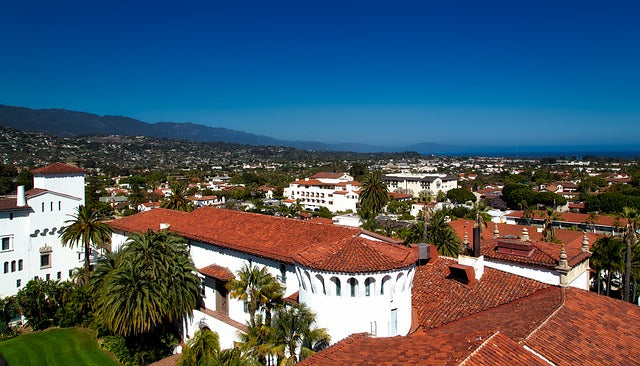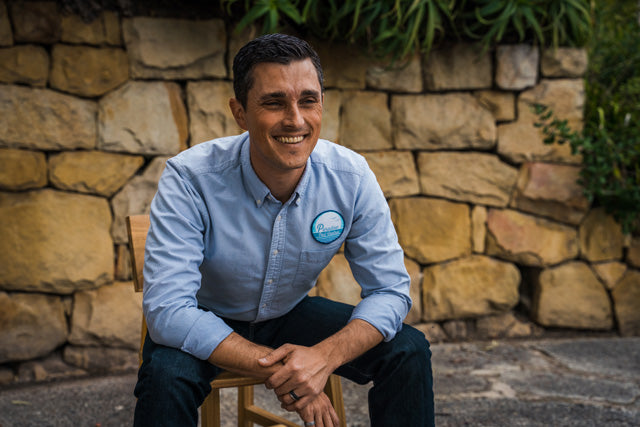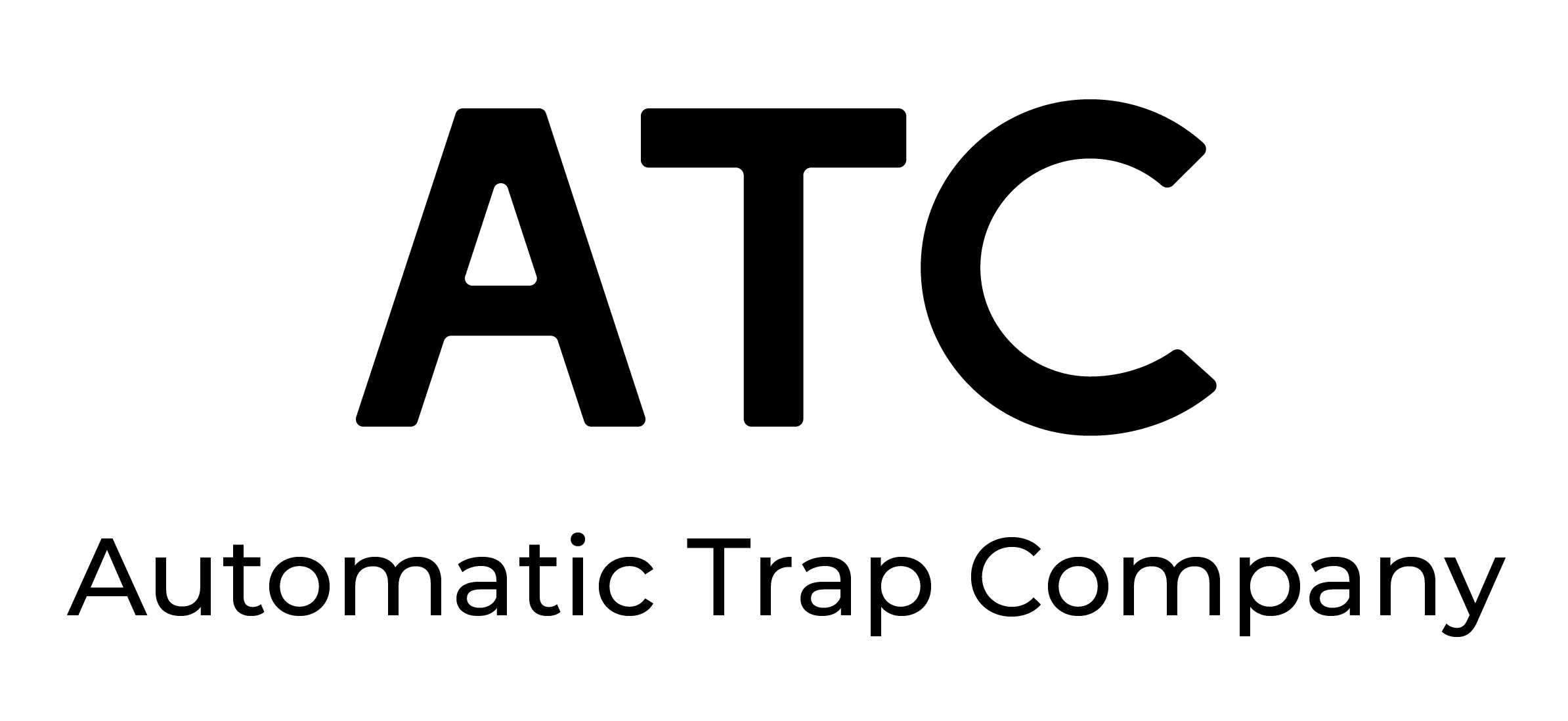
Interview with Sean Steele from Paradise Pest Control

We recently spoke with Sean Steele of Paradise Pest Control. Paradise Pest Control uses the most advanced, effective and nature-based products available to abate pests. No rodenticides are ever used and their pest control methods are 100% green.
AT: Hi, and welcome everybody. Thanks for listening to our latest A24 Automatic Trap interview series. Today we're joined by Sean Steele of Paradise Pest Control. Paradise Pest Control is a 100% green pest control company in California, that doesn't use toxins or rodenticides or any other inhumane rodent control methods for that matter. They are also a big proponent of the good nature A24 and how it can be used for pest control operators. So we want to welcome you today, Sean, and thank you for joining us and we'd love to hear some of you and your teams experiences in the world of pest control. So welcome.
Sean: Absolutely. Thank you. I'm happy to be here.
AT: Can you start off by sharing with us a bit more about yourself, how you got into pest control and a bit about Paradise Pest Control?
Sean: Yeah, sure. I haven't always been in the pest control industry, in fact, it's not really what I had in mind growing up as a young child. I've actually been working in the medical field since 2006. I've been working in the radiology department. Did that for about 10 years while also teaching as an adjunct instructor at Santa Barbara City College in the radiology department. So been very invested in medical and medical education.
My wife and I took some time to go live abroad for a year. And when we came back, we didn't really know what direction we wanted to go in. And my father in law — who has been doing pest control locally for many years and had a lot of experience just doing his own thing; doing agricultural pest control — said that I could work with them and learn the ropes. So I started doing that.
I quickly learned that I kind of wanted to branch off and do my own thing. So in 2017, that's when I started Paradise Pest Control. Essentially, being involved in education, I didn't want to just learn how to do it — I wanted to learn about it. So once I started seeing all of the negative aspects of the so-called conventional methods of pest control, I told myself there's got to be something better. There has to be something better than what's happening right now.
So, saw the need for effective alternatives and once I had kind of a line of clientele ready to go, I went 100% and we're not planning on going back.
AT: That's awesome. That's a really interesting story. Everyone kind of always comes from a different angle I feel like to get into the pest control industry, and that's a really fascinating path. Where were you living abroad, if you don't mind me asking?
Sean: So my wife and I were living in the Czech Republic, in the capital, Prague.
AT: Awesome. It must've been some cool experiences there for sure.
Sean: It was fantastic, yeah.
AT: Yeah. So in terms of geography, what are some of the pest control challenges that your team faces that are a little bit unique to the area that you operate in?
Sean: Well for anyone that's driven through Santa Barbara County, they may have noticed how close the city is packed between our beautiful mountain range as well as the Pacific ocean. So because of that location, just about all of the housing is right up against nature. There's no way you can get away from the fact that you might have mountain lions, raccoons or skunks coming through your yard. It's just a fact of life. And with that has created some unavoidable run-ins with, of course, rodents. Not only do we have the coast, we have many creek beds that run through our area. We have the mountains I spoke of. We have the 101 freeway and we have a railroad. So all of those are natural breeding grounds for rodents. And because of this, pretty much the entire area — especially the areas of Montecito and up into the Hills — have rodent issues.
But that's not really the big problem because I don't like to call nature a problem. It's actually a beautiful thing. The difficulty is the culture that surrounds this issue. Many people want to just make things go away and because of nature's natural processes, there is no silver bullet to just make any particular thing disappear. So the biggest challenge geographically is the abundance, but also the culture of trying to help people understand that we can't just make these things go away. We have to learn how to live with them and among them and find a balance.

AT: Right, of course. And that's obviously a very unique California issue as well. And obviously rodenticides and just the awareness in that part of the country, it's very strong and growing day by day.
And you also mentioned when you started Paradise Pest Control, you wanted to do it better or differently, I should say. And so why is it so important to you and your company to dispatch a pest humanely?
Sean: Well, the answer to that question kind of starts when I started getting to know my wonderful wife, Julie. I always had an appreciation for nature, but she is very much an animal lover — had a lot of empathy for wildlife. And of course, when you get married, those personality traits start rubbing off on you — so much so that we actually got married at the Santa Barbara Zoo. So that kind of began my appreciation for nature. And my core belief is that mankind's place on this planet — part of that purpose is to be a steward to nature. Because of our rank — I guess for lack of a better word — on earth, I see it as our duty to make sure that we take care of what's around us regardless of the relationship. Whether some things are considered undesirable or pests, we still have a duty to handle them in a humane and a caring way.
Pests, even just that word pest to me, it's obviously got a negative connotation. But in reality, it's just nature that's causing a human being discomfort. And so scientists are learning every year more and more about the traits of animals and even rodents, how their social interactions are, how intelligent they are. And before it was just, "Oh, there's a rat, let's kill it." But we're discovering more and more that there's a lot more to animals than we ever knew. And I think we kind of need to pair that humility that comes with those discoveries, with the duty of being a steward to nature so that we make sure that we're not increasing suffering regardless of our actions.
AT: I agree with you 100%. I think you've probably mentioned this in your previous answers, and so would it be rodents — rats — particularly that Paradise deals with most frequently?
Sean: Yeah, so in our area the majority of the rodents we deal with — and yes it is mostly rodents — we have a lot of roof rats, wood rats, also known as pack rats. So because of the area that we live in, it's really common to find tons and tons of nests on people's property of woodrats all along the creeks and things like that. We have the California mouse, a very cute little white tummy. They're always running around looking for a home. We also — with Paradise Pest Control — we deal a lot with the local pocket gophers. And then also ants are a big issue and mostly the Argentine ant because it is invasive. And for those that know about this ant, basically, all of California is one giant supercolony. So they work together, so those can be a real issue too. Right now our main thrust and focus is on the above-ground rodent control.
AT: Right. So I guess a good question — I guess it's not a shameless plug entirely, but you deal commonly with dispatching rodents lethally. How did you first hear about our trap, the Goodnature A24.
Sean: So I can't exactly say where the first time I saw it was. I was searching online, I was just looking for better ways. One thing I knew is that with a snap trap, the amount of time it takes to go and check the traps and things like that — it doesn't match up to the price point that clients are looking for. It's not as effective. So I know it was online. What really sealed the deal was when I started getting into and purchasing them, and then I also saw the video from, I think it's Shawn Woods, and I saw it and he struck me as someone who really knew what he was talking about. So when he was saying how much he liked it, that helped me know that I was going in the right direction with that.
But the biggest thing was, I was looking for an effective alternative to rodenticides because I just knew someone's got to be out there that's come up with something better.
AT: Right. So what does your team like about using the traps? Obviously you mentioned there's no rodenticides, it's automatic so they don't have to go out and set the trap. Maybe you could tell us a little bit about your experience with them and why it's been so beneficial to your business.
Sean: Yeah. Well, like you said in the introduction, we do 100% A24 rodent abatement. So that is actually the only tool that we use. We really like it because it's easy to install, it's easy to move, the way that we have them set up — and I don't want to pull the curtain back too much on the methods we've figured out because we've been working with them for a couple of years now. The method we've developed is, we're able to move them very easily within seconds and maintain. I also really appreciate that I can give results to the client.
One thing that I've noticed about the pest control industry is it's unintentionally clandestine. People don't really know what's going on. They have a problem, they call someone, he comes out in a nice shirt, and then that's really all they know. But I can actually give clients results and tell them, or even all my clients at once, "Hey, you guys have helped contribute to this amount of humane kills." So I can track the results. I can give that to them. And one thing I'm really, really happy about is to provide poison-free scavenging. Like I said, we see local wildlife all the time. I recall approximately maybe six or seven years ago, my wife and I were coming away from visiting a friend in Montecito and we drove right past a mountain lion. So they're there — they're in our backyard. And knowing that what I'm doing is not putting them in danger helps me feel good about my business. So I'm not just sending bills out. I feel like I'm really helping our community.
AT: Right. That's a great answer. And yeah, we see it all the time with the user-submitted videos people send us. Whether it's a stray cat, a raccoon, a fox, etc. — that's one of the really interesting benefits to our trap, is when it is set up in the wild you see those wild scavengers and you're not throwing that poison into the ecosystem, which is obviously why we're doing this and why you are as well.
Sean: Yeah, exactly.
AT: Well that's great. I guess that's pretty much all of the questions that we wanted to go through today. Lastly, we want to know what's next for Paradise Pest Control and where can people find you online, whether that's social media or your website. Now's your time to plug what you guys have got going on and let people know where they can find you.
Sean: Absolutely. Thank you for asking. Well like I said, 2020 is kind of the year that we're ramping up. We are a small team so we're basically looking to expand in 2020. The biggest things we're excited about is that we've actually been installing with permission from some of our client's trail cams on their property, watching the scavenging happen. So as we continue to do that, we're going to have more and more videos that we're going to be uploading on our social media, demonstrating locally how our clients can help contribute to local scavenging.
So far we've gotten some skunks, caught a couple of possums. We haven't caught any bobcat's on the video yet or mountain lions, but hopefully, that'll be close at hand. And so we really want to share that with the community.
Also, we are going to be working with some local organizations in California to try to do some fundraising for them. We're going to be going through Bonfire to do some t-shirts for them. And I actually tagged Goodnature in a post today. And so I'm trying to appeal to the nostalgia of my generation, but also increasing awareness to rodenticides and how we can reduce those.
But really, the biggest thrust I could say that we're planning to move towards is, we don't want to just be a pest control service that you hire. Our goal is to help our clients feel like they're part of a solution. And because of that, we want to have engagement with them. We don't want to be the secretive company that just comes on their property, does something and then sends them a bill. We want all of our clients to know what they're a part of and we want to be transparent because we feel that that's what our communities deserve. So that's kind of the biggest thrust, is not just being a company, but we really want to be part of a community that people are happy to be a part of.
AT: Yeah, that's fantastic. We're on the exact same wavelength. We really appreciate your enthusiasm for the product. It's a real pleasure for us to talk to a company such as yours that just gets it and gets where we're coming from and we're trying to achieve a lot of the same goals. So we really appreciate you taking some time out of your day to share with us your energy and your vision for Paradise Pest Control. We're looking forward to partnering with you guys in the future. And once again, Sean, thanks for everything.
Sean: Absolutely, and just real quick, I forgot one little plug. It's still here in this bag I have — it's that the best way to follow us is on Instagram, it's all one word, no spaces: @paradisepestcontrol. We have paradisepestco.com, but that link is in our profile. But Instagram is really the main way that we're reaching out to our community and trying to build those relationships. So if anyone wants to really see those scavenging videos, they want to see the efficacy of this system and really be a part of that community, follow us on @paradisepestcontrol. And if there's any organizations out there, we would love to host a fundraiser for you. 100% of the proceeds for each particular one will go to that organization. We are thinking about doing one for ourselves to purchase more trail cams, but first, we want to get more money into these organizations.
AT: Awesome. That's great. We definitely recommend to our user base to follow you guys, great follow, awesome content and very engaged with the community.
So I guess that wraps everything up. Sean, thanks again for your time. Look forward to talking again in the future.
Sean: Me too.

- Choosing a selection results in a full page refresh.
!

